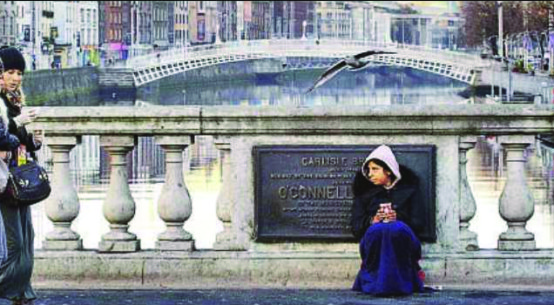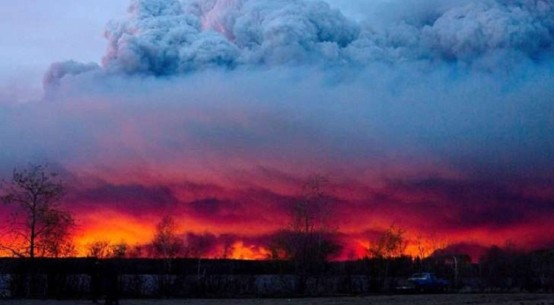
In the aftermath of the events in JNU, the NDA is forcing every person intervening in the debate to first prove his/her nationalistic commitment. Not agreeing with the BJP discourse means that the person is anti-national.
Three months ago, I jocularly argued in these columns (Our ‘liberal’ worries, December 18) that American presidential aspirant Donald Trump could be considered an avatar of fringe Hindutva politicians like Praveen Togadia, Sakshi Maharaj and Yogi Adityanath. At that time, Mr Trump securing a presidential nomination appeared as remote a possibility as any of them becoming the next Indian President. Yet, three months later, Mr Trump has expanded an Islamophobic campaign that buttresses insecurity among White Americans and plays on this group’s fear of the “other” who, in their imagination, is sounding the death knell for white supremacy. Mr Trump attacks all immigrants; Muslims and Indians constitute a fair number of them. Muslims, according to Mr Trump, are bad because they import terror while Indians are evil for stealing jobs. The American establishment is not exactly gung-ho at the prospect of Mr Trump becoming President and upsetting the status quo. The rise of Islamic terror post-Cold War has witnessed resurgence of Right-wing politics in several parts of the Western world, including Europe. In most countries, public support for this viewpoint, though significant, has not been overwhelming — one that could force a change in the dominant political discourse. Governments and mainstream political parties have, by and large, reacted with dread to odd groups channelizing this nascent support and converting it into a wider backing. That such an endorsement may eventually trigger a return to the dark past when democratic institutions and thought were bludgeoned into submission is a real worry for mainstream political parties. The challenge to Mr Trump’s proposition that security challenges in Europe can be met only by racial and sectarian means suggests that the majority of people and political forces do not support his tactics and theories. Over the past two and a half decades, India has witnessed a steady rise in support for majoritarianism and totalitarian definition of nationalism. Compared to the 1980s, the majority of Indians have an altered perspective now when talking on the minority question and the relationship of the majority community with the minorities. Unlike in Europe or the US, this change has not been overnight; it has been accompanied by the Bharatiya Janata Party’s gradual progression to power. The rise of the BJP, it must be factored, was greatly assisted by other political parties which facilitated this by discreet electoral pacts and open coalitions since the 1980s. Even earlier, mainstreaming of the Rashtriya Swayamsevak Sangh and the Jana Sangh was a result of its partnership with other anti-Congress parties during the Emergency, when it became part of the Janata Party. Despite charges of Prime Minister Narendra Modi being complicit in anti-Muslim riots in Gujarat in 2002, which led to global condemnation and extreme steps like denying him a visa to the US and disapproval in the UK, after he became Prime Minister, several nations and their leaders, starting with the US, the UK, France and Germany among several others, fawned over him as the new hero from India who would not only transform bilateral partnerships with their country but also become a more potent global ally in the war against terror. This underscores the inherent hypocrisy of democratic nations because they confront Islamophobists in their countries with regularity but display concern on Mr Modi’s prejudice-promoting politics only when Christians and their religious properties are targeted. In conversations with diplomatic representatives of several nations, it is evident that they consider Mr Modi little more than a showman. Yet, his claim of representing 1.25 billions people forces them to pay obeisance. They stand in line waiting for their turn to be hugged and get selfies taken because in their mind they are tabulating economic gains from treaties and agreements. After all, the West has always turned a blind eye to human rights violations in countries it has economic interests. In the past 22 months, India has taken a huge step back. Last year, when India marked the 40th anniversary of the imposition of Emergency, L.K. Advani stunned the nation by stating that he did not rule out the possibility of a similar situation in future.
Emergency may not have been imposed by law but it is already in place by action. Instead of official censorship, there is social restriction on what can be said. Forget dissent, one is not even allowed to question basic presumptions of the ruling government. The Indian Army is now viewed as an institution that can do no wrong. Questioning its steps or saying that the Indian armed forces do not have the best of human rights records is labelled a grossly anti-national act. It is forgotten that anyone who questions accepted assumptions is neither rejecting the broad consensus nor committing a crime. Questioning authority — political as well as intellectual — is the essence of democracy. Yet, we have a situation in India where the ruling party and government browbeat the entire populace into accepting a unitary view on every issue. In the aftermath of the events in Jawaharlal Nehru University, the ruling dispensation is forcing every person intervening in the debate to first prove his/her nationalistic commitment. Not agreeing with the BJP discourse — no one should have a contrarian view on Afzal Guru or Yakub Memon’s execution — means that the person is anti-national. No effort is made to rationally detail what being anti-India means. Will someone be labelled anti-India for supporting Bangladesh in the T-20 finals? Will I be anti-national by wishing that JNU should remain as it is? India is beginning to resemble Hirak Rajya or the Kingdom of Diamonds, the imaginary kingdom of Satyajit Ray’s classic Hirak Rajar Deshe. The attack on JNU and other temples of learning resembles the despot’s decision to shut schools because knowledge empowers people to protest. One can hope that a fantasy machine like the film’s Jantar Mantar miraculously appears. Moral and political custodians of the day can then be reformed and a semblance of pluralism restored in our social discourse.
The writer is the author of Narendra Modi: The Man, the Times and Sikhs: The Untold Agony of 1984



